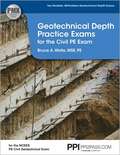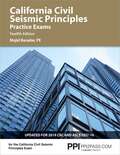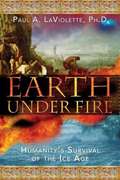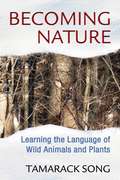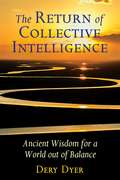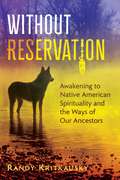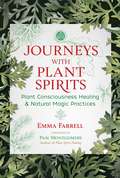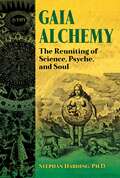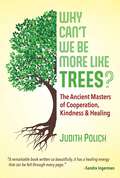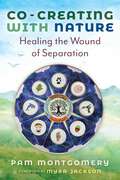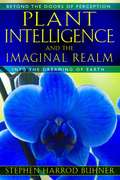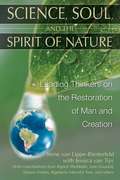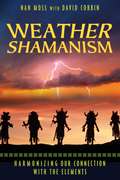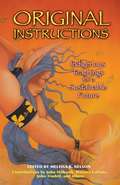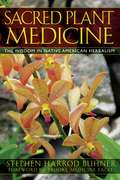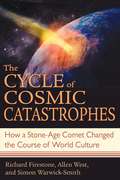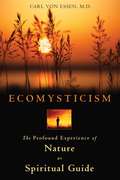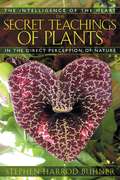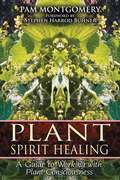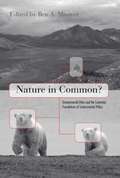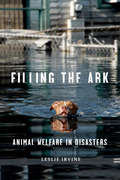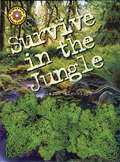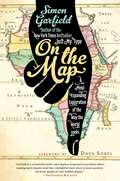- Table View
- List View
PPI Geotechnical Depth Practice Exams for the Civil PE Exam eText - 1 Year
by Bruce A. Wolle MSE, PERealistic Practice for the NCEES PE Civil Geotechnical ExamGeotechnical Depth Practice Exams for the Civil PE Exam contains two 40-problem, multiple-choice exams consistent with the NCEES PE Civil geotechnical depth exam&’s format and specifications. Like the actual exam, the problems in this book require an average of six minutes to solve. Comprehensive step-by-step solutions demonstrate accurate and efficient problem-solving approaches. Author commentary is provided in the solutions, explaining common pitfalls and suggesting time-saving shortcuts. Taking each exam in Geotechnical Depth Practice Exams within the same four-hour time limit as the actual exam will simulate exam conditions, enhance your time-management skills, and help you identify which references you&’ll need most on exam day. Then, you can easily evaluate your performance by using the two individual answer keys.Key FeaturesConsistent with the exam scope and formatLearn accurate and efficient problem-solving approachesConnect relevant theory to exam-like problemsSolve problems in an exam-like timed settingBinding: PaperbackPublisher: PPI, A Kaplan Company
PPI California Civil Seismic Principles Practice Exams, 12th Edition eText - 1 Year
by Majid Baradar PERealistic Practice for the California Civil Seismic Principles ExamCalifornia Civil Seismic Principles Practice Exams, 12th Edition provides comprehensive practice for the California Civil Seismic Principles exam. This book contains two realistic, full-length exams, each with 55 multiple-choice problems. All exam topics are covered, from basic seismology through applications of codes and standards. Step-by-step solutions to quantitative problems illustrate efficient problem-solving approaches. Qualitative solutions explain the correct answers and present related supportive information. Answer keys to both exams are included. This book can be used at the beginning of your exam preparation to assess familiarity with exam topics and to identify topics needing further review. You can also use this book at the end of your exam preparation to evaluate your preparedness and identify necessary references. Key FeaturesConsistent with the exam scope and formatLearn accurate and efficient problem-solving approachesBecome familiar with the codes and standardsRealistic practice helps you to solve problems quickly and confidently on exam dayBinding: PaperbackPublisher: PPI, A Kaplan Company
Earth Under Fire: Humanity's Survival of the Ice Age
by Paul A. LavioletteAnother book in a series of books on quantum physics exploring the construct of our universe. this book covers the coming galactic changes.
Becoming Nature
by Tamarack SongA step-by-step guide to animal communication, connecting with your primal mind, and immersing yourself in Nature - Includes exercises for learning how to become invisible within Nature, sense hidden animals, and communicate with wild animals and birds - Explains how to approach wild animals and form friendships with them - Details the intuitive awareness of our hunter-gatherer ancestors and their innate oneness with Nature Animals and plants are in constant communication with the world around them. To join the conversation, we need only to connect with our primal mind and recognize that we, too, are Nature. Once in this state, we can communicate with animals as effortlessly as talking with friends. The songs of birds and the calls of animals start to make sense. We begin to see the reasons for their actions and discover that we can feel what they feel. We can sense the hidden animals around us, then get close enough to look into their eyes and touch them. Immersed in Nature, we are no longer intruders, but fellow beings moving in symphony with the Dance of Life. In this guide to becoming one with Nature, Tamarack Song provides step-by-step instructions for reawakening the innate sensory and intuitive abilities that our hunter-gatherer ancestors relied upon--abilities imprinted in our DNA yet long forgotten. Through exercises and experiential stories, the author guides us to immerse ourselves in Nature at the deepest levels of perception, which allows us to sense the surrounding world and the living beings in it as extensions of our own awareness. He details how to open our minds and hearts to listen and communicate in the wordless language of wild animals and plants. He explains how to hone our imagining skill so we can transform into the animal we are seeking, along with becoming invisible by entering the silence of Nature. He shows how to approach a wild animal on her own terms, which erases her fear and shyness. Allowing us to feel the blind yearning of a vixen Fox in heat and the terror of a Squirrel fleeing a Pine Marten, the practices in this book strip away everything that separates us from the animals. They enable us to restore our kinship with the natural world, strengthen our spiritual relationships with the animals who share our planet, and discover the true essence of the wild within us.
The Return of Collective Intelligence: Ancient Wisdom for a World out of Balance
by Dery DyerReveals how we can each reconnect to collective intelligence and return our world to wholeness, balance, and sanity • Explains how collective intelligence manifests in flocks of birds, instantaneous knowing in indigenous peoples, and the power of sacred places • Offers ways for us to reconnect to the infinite source of wisdom that fuels collective intelligence and underscores the importance of ceremony, pilgrimage, and initiation • Draws on recent findings in New Paradigm science, traditional teachings from indigenous groups from North, South, and Central America and Siberia, as well as sacred geometry, deep ecology, and expanded states of consciousness For our ancestors, collective intelligence was a normal part of life. We see it today as the mysterious force that enables flocks of birds, swarms of bees, and schools of fish to function together in perfect synchrony, communicating and cooperating at some undetectable level. At its most subtle, it&’s an instantaneous knowing, shared by members of a group, of the wisest course of action that will benefit all. As Dery Dyer reveals, collective intelligence still resides within each of us, and it is the key to restoring balance and harmony to our world. She shows how it occurs spontaneously when individuals who share a need and a purpose instinctively &“self-organize&” into a group and function with no leader or central authority. Such groups exhibit abilities much greater than what any of their members possess individually--or what can be replicated with artificial intelligence. Dyer explains, due to an unquestioning dependence on technology, modern humanity has forgotten how to connect with collective intelligence and fallen into collective stupidity, otherwise known as mob mind or groupthink, which is now endangering the interconnected web of life on Earth. Drawing on recent findings in New Paradigm science, traditional teachings from indigenous groups, as well as sacred geometry, deep ecology, and expanded states of consciousness, the author shows how the ability to think and act collectively for the highest good is hardwired in all living beings. She explains how to release ourselves from enslavement by technology and use it more wisely toward the betterment of all life. Underscoring the vital importance of ceremony, pilgrimage, and initiation, she offers ways for us to reconnect to the infinite source of wisdom that fuels collective intelligence and which manifests everywhere in the natural world. Revealing that once we relearn how to hear the Earth, we can heal the Earth, Dyer shows how each of us has a vital role to play in restoring our world to wholeness.
Without Reservation: Awakening to Native American Spirituality and the Ways of Our Ancestors
by Randy KritkauskyA powerful story of spiritual awakening, reconnection with Nature, and rekindling of ancestral wisdom • Details the author&’s encounters with ancestral spirits and animal teachers, such as Coy-Wolf, and profound moments of direct connection with the natural world • Shows how ancestral connections and intimate communications with Nature are not unique or restricted to those with indigenous cultural roots • Reveals how reconnection with ancestors and the natural world offers insight and solutions for the complex problems we face We are but a few generations removed from millennia spent living in intimate contact with the natural world and in close commune with ancestral spirits. Who we are and who we think we are is rooted in historical connections with those who came before us and in our relationships with the land and the sentient natural world. When we wander too far from our roots, our ancestors and kin in the natural world call us home, sometimes with gentle whispers and sometimes in loud voices sounding alarms. In this powerful story of spiritual awakening, Randy Kritkausky shares his journey into the realm of ancestral Native American connections and intimate encounters with Mother Earth and shows how anyone can spiritually reconnect with their ancestors and Nature. Like 70 percent of those who identify as Native American, Kritkausky grew up off the reservation. As he explains, for such &“off reservation&” indigenous people rediscovering ancestral practices amounts to a reawakening and offers significant insights about living in a society that is struggling to mend a heavily damaged planet. The author reveals how the awakening process was triggered by his own self-questioning and the resumption of ties with his Potawatomi ancestors. He details his encounters with ancestral spirits and animal teachers, such as Coy-Wolf. He shares moments of direct connection with the natural world, moments when the consciousness of other living beings, flora and fauna, became accessible and open to communication. Through his profound storytelling, Kritkausky shows how ancestral connections and intimate communications with Nature are not unique or restricted to those with indigenous cultural roots. Offering a bridge between cultures, a path that can be followed by Native and non-Native alike, the author shows that spiritual awakening can happen anywhere, for anyone, and can open the gateway to deeper understanding.
Journeys with Plant Spirits: Plant Consciousness Healing and Natural Magic Practices
by Emma Farrell• Presents meditation journeys with specific plant and tree spirits, such as Mugwort, Rosemary, Dandelion, Yew, Elder, and Wormwood • Details how to achieve a calm mind, cleanse your energy field, and connect with your heart in preparation for meditating with the plants • Includes a progressive series of introductory meditations, adapted from wisdom traditions, to lay the foundation for working with plant spirits Our ancient ancestors understood the language of nature, enabling them to communicate innately with plants. By quieting the mind through meditation, we too can tap into the vibratory resonance of plants and receive their wisdom and healing. In this guide, Emma Farrell explains how to take your connection and relationship with nature to a deeper level and access plant spirit healing through meditation with plants. She explores the nature of plant consciousness and how plants perceive, drawing on indigenous and shamanic teachings. She details how to achieve a calm mind, cleanse your energy field, and connect with your heart in preparation for meditating with plants and trees, showing how the plants can support us not only in the cleansing process but also in teaching us how to sense what is in our energy field. Offering a progressive series of preparatory meditations, adapted from wisdom traditions, the author reveals how to lay the foundation for working, communicating, and developing relationships with plant and tree spirits for personal development, spiritual connection, and inner peace. She then presents meditation journeys with specific plant spirits, focusing on specific frequencies within the plant&’s bio-resonance to assist you. For example, the meditation with Mugwort works with the plant spirit&’s qualities of alignment and self-awareness to assist you with grounding and developing inner vision, while the meditation with Dandelion helps you break old habits by working with the plant&’s qualities of release, reconnection, and fearlessness. Revealing how each plant is an expression of the soul force of Mother Nature and carries a unique blend of her medicine and wisdom, this guide details step-by-step how to effectively work with plant spirits for emotional and spiritual healing, enabling you to awaken the eternal spirit, or soul, to become truly multidimensional and whole.
Gaia Alchemy: The Reuniting of Science, Psyche, and Soul
by Stephan Harding• Examines how integrating important alchemical images with Gaian science can offer insights into our interconnectedness with Gaia • Looks at how the four components of the living earth--biosphere, atmosphere, hydrosphere, and lithosphere--mesh with the four elements of alchemical theory and the four functions of consciousness as understood by depth psychology • Offers guided meditations and contemplative exercises to open your receptivity to messages from the biosphere and help you connect more deeply with Gaia During the scientific revolution, science and soul were drastically separated, propelling humanity into four centuries of scientific exploration based solely on empiricism and rationality. But, as scientist and ecologist Stephan Harding, Ph.D., demonstrates in detail, by reintegrating science with profound personal experiences of psyche and soul, we can reclaim our lost sacred wholeness and help heal ourselves and our planet. Harding begins with compelling introductions to depth psychology, alchemy, and Gaia theory--the science of seeing the Earth as an intelligent, self-regulating system, a theory pioneered by his mentor James Lovelock. He then explores how alchemy, as understood through the depth psychology of C. G. Jung, offers us powerful methods of reuniting rationality and intuition, science and soul. He examines the integration of important alchemical engravings, including L&’Azoth des Philosophes and the Rosarium Philosophorum, with Gaian science. He shows how the seven key alchemical operations in the Azoth image can help us develop deeply transformative experiences and insights into our interconnectedness with Gaia. He then looks at how the four components of the living Earth--biosphere, atmosphere, hydrosphere, and lithosphere--mesh not only with the four elements of alchemical theory but also with the four functions of consciousness from depth psychology. Woven throughout with the author&’s own experiences of Gaia alchemy, the book also offers guided meditations, shamanic practices, and contemplative exercises to open your receptivity to messages from the biosphere and help you develop your own Gaia alchemical way of life, full of wonder and healing.
Why Can't We Be More Like Trees?: The Ancient Masters of Cooperation, Kindness, and Healing
by Judith Bluestone PolichReveals how we can learn from the intelligent communities of trees and plants• Shares breakthrough research on how tree and plant communities function, revealing a holistic, interconnected, communal, and sentient new world • Examines the attributes we share with trees and plants and how the behaviors of altruism, cooperation, and community are genetically coded in our beings • Looks at how to learn to see, think, imagine, and live with holistic eco-centric awareness and the benefits that come from working with our plant allies Breakthrough research is not only revealing a brilliant green world with amazing attributes like dispersed intelligence but also that humanity, like the tree and plant kingdom, thrives on innate cooperation, sharing, altruism, and community. Exploring the latest cutting-edge environmental and ecological studies, climate advisor and environmental advocate Judith Polich explains how we can now see how tree and plant communities function, revealing a holistic, interconnected, communal, and seemingly sentient new world. She explains how trees communicate, how they share resources, and other ways in which they express holistic and cooperative behaviors. Looking at the new scientific understanding of the evolutionary basis of altruism, cooperation, and community—and how these behaviors are genetically coded in our beings—the author examines the attributes we share with trees and other plant communities. She explores the healing powers offered by the plant kingdom, not just as medicines but through shared sentience that can help heal our sense of dissociation and disenchantment. Revealing how to see, think, imagine, and live with holistic eco-centric awareness, the author discusses how the stories we tell ourselves and our spiritual belief systems are becoming greener, including a resurgence of beliefs that originated with plant teachers. She also explores how to overcome our current cognitive biases through greater interaction with plant intelligence. By viewing the world through a greener lens, not only can we reframe and unravel the deeper causes of the climate crisis, but we can also help co-create a new more conscious world with our plant allies.
Co-Creating with Nature: Healing the Wound of Separation
by Pam Montgomery• Establishes that being in partnership with Nature is our birthright, explores the roots of our separation, and demonstrates that we are designed to communicate with Nature• Offers six principles of co-creative partnership with Nature that serve as a map for guiding us back to our rightful place as a part of Nature• Explains that plants can guide us in living according to our true essential nature and details the steps of creating and facilitating a plant initiation with common plantsWe are in the midst of a global transformation where we must heal our separation from Nature and restore our partnership with the living Earth, which is essential to co-creating a world where all life—human and nonhuman—can thrive.In this groundbreaking book, Nature Evolutionary and Earth Elder Pam Montgomery draws on her decades of working with plants and Nature consciousness to demonstrate that we are intrinsically created to be in relationship with Nature. She examines the co-opting of time, language, and culture to shed light on the roots of our separation, weaving together contemporary research on human physiology with personal experience.She offers six principles of developing a co-creative partnership, explaining that we can communicate with Nature through vibratory resonance. She details the steps of co-creating an initiation with a specific plant ally, where bonding brings healing, and she shares evocative stories, meditations, and the healing wisdom gained from the profound plant initiations she and her students have participated in, all with common plants.Through this book, Pam reveals how to restore our relationship with the living Earth and come home not only to Nature but also to ourselves. She shows that when we nurture ourselves, trust our intuition, and allow for joyful encounters, we restore our interconnection with all life.
Mysteries of the Round Towers: The Subtle Energies of the Stone Structures of Ireland
by Christopher Freeland• Reveals how the round towers were built over the crossing of underground waterways and with every stone in magnetic polarity alignment• Explains how the siting and magnetic properties of the towers energetically enhances the surrounding environment, akin to feng shui and vastu• Presents a guide to the energetic principles behind the creation and purpose of the round towersIn Ireland, and to a lesser extent Scotland, in seemingly unconnected locations, there are more than 60 enigmatic round towers, often 90 feet tall or higher and nearly uniform in their construction. Believed to have been built between the 7th and 10th centuries CE, the Roman Catholic Church long ago laid claim to them. Yet who built them—and why—is completely unknown, and even their date of construction is debatable.Presenting a professional dowser&’s radiesthetic and magnetic analysis of the round towers of Ireland, Christopher Freeland examines previously unexplored yet fundamental facts common to all of the round towers, including geographic orientation, connections to underground waterways, historical records, and the magnetic polarity of the stones themselves. Explaining the basics of radiesthesia, the energetic science of dowsing, the author shows how the locations of the towers have far-reaching ramifications for the health of humans, animals, and plants in their surrounding areas. His in-person examinations reveal how systematic magnetic orientation of the stones in these towers&’ walls, the unusual construction techniques of the unknown architects, and the resulting access to Earth&’s telluric forces further enhance their energetic effects. He explores the types of stone used, speculates how many towers once existed, and firmly debunks the assertion that they were built by the Church.Offering a guide to the creation and purpose of the round towers, Freeland shows that we can once again embrace the ancient wisdom of our ancestors about the flow of energy in the Earth and bring back balance and harmony through understanding Nature&’s alchemy of stone, water, and magnetism.
Plant Intelligence and the Imaginal Realm: Beyond the Doors of Perception into the Dreaming of Earth
by Stephen Harrod BuhnerA manual for opening the doors of perception and directly engaging the intelligence of the Natural World • Provides exercises to directly perceive and interact with the complex, living, self-organizing being that is Gaia • Reveals that every life form on Earth is highly intelligent and communicative • Examines the ecological function of invasive plants, bacterial resistance to antibiotics, psychotropic plants and fungi, and the human species In Plant Intelligence and the Imaginal Realm, Stephen Harrod Buhner reveals that all life forms on Earth possess intelligence, language, a sense of I and not I, and the capacity to dream. He shows that by consciously opening the doors of perception, we can reconnect with the living intelligences in Nature as kindred beings, become again wild scientists, nondomesticated explorers of a Gaian world just as Goethe, Barbara McClintock, James Lovelock, and others have done. For as Einstein commented, “We cannot solve the problems facing us by using the same kind of thinking that created them.” Buhner explains how to use analogical thinking and imaginal perception to directly experience the inherent meanings that flow through the world, that are expressed from each living form that surrounds us, and to directly initiate communication in return. He delves deeply into the ecological function of invasive plants, bacterial resistance to antibiotics, psychotropic plants and fungi, and, most importantly, the human species itself. He shows that human beings are not a plague on the planet, they have a specific ecological function as important to Gaia as that of plants and bacteria. Buhner shows that the capacity for depth connection and meaning-filled communication with the living world is inherent in every human being. It is as natural as breathing, as the beating of our own hearts, as our own desire for intimacy and love. We can change how we think and in so doing begin to address the difficulties of our times.
Science, Soul, and the Spirit of Nature: Leading Thinkers on the Restoration of Man and Creation
by Jane Goodall Rupert Sheldrake Masaru Emoto Irene van Lippe-Biesterfeld Jessica Van Tijn Rigoberta Menchú TumAn exploration of the relationship between humans and nature through conversations with 12 leading scientific and social visionaries • Explores the importance of the unification of humankind and nature as it relates to creation, destruction, diversity, and the spiritual health of the world • Contains interviews with Rupert Sheldrake, Jane Goodall, and Nobel Peace Prize-winner Rigoberta Menchú Tum, among others Society’s attitude toward nature has changed considerably over the years. Terms pertaining to the anthropocentric paradigm of "mankind in charge," such as supervisor or owner, have been replaced by caretaker or trustee. This approach, although more appropriate, still indicates a complete separation of humankind from nature. Yet increasing numbers of people have begun to feel that they are intrinsically part of nature. This concept of unity with the natural world--that we are nature--is gaining momentum among many innovative social reformers from many diverse fields. In Science, Soul, and the Spirit of Nature, Irene van Lippe-Biesterfeld interviews 12 respected visionary thinkers, representing all continents, about their deep connection with the earth and their views on the relationship between humanity and nature. Presented as a series of thought-provoking conversations, this book delves deeply into the many conceptions we hold about nature, showing that while many strides have been made in the area of its preservation, we must now take the next step. Each contributor adds insights into the urgent change in consciousness that we must adopt in order to heal and restore our holistic relationship with the earth that was emblematic of the first peoples--reminding us that a separation from and destruction of nature is a spiritual destruction of ourselves.
Weather Shamanism: Harmonizing Our Connection with the Elements
by David Corbin Nan MossCreating an alliance and working partnership with the spirits of weather to restore well-being and harmony to Earth and ourselves • Reveals that, intentionally or not, we affect the weather not only through our actions but also through our thoughts and emotions • Explains shamanic techniques for working with the spiritual nature of weather • Special section on “weather dancing” details both its ceremonial and therapeutic aspects With the growing consensus that global warming is a fact comes the realization that the increasingly violent weather we are experiencing is its chief manifestation. Each storm, each flood, each blizzard seems to break 100-year-old records for both intensity and damage. Reducing emissions of greenhouse gases may be too little, too late. Through a unique blend of anthropological research, shamanic journeys, and personal stories and anecdotes, Moss and Corbin show how humans and weather have always affected each other, and how it is possible to influence the weather. They present teachings directly from the spirits of weather that show how our thoughts and emotions affect weather energetics. They also reveal the ceremonial and therapeutic aspects of “weather dancing,” a practice used to communicate with the weather spirits.Weather Shamanism is about transformation--of ourselves, and thus our world. It is about how we can develop an expanded worldview that honors spiritual realities in order to create a working partnership with the spirits of weather and thereby help to restore well-being and harmony to Earth.
Original Instructions: Indigenous Teachings for a Sustainable Future
by Melissa K. NelsonIndigenous leaders and other visionaries suggest solutions to today’s global crisis • Original Instructions are ancient ways of living from the heart of humanity within the heart of nature • Explores the convergence of indigenous and contemporary science and the re-indigenization of the world’s peoples • Includes authoritative indigenous voices, including John Mohawk and Winona LaDukeFor millennia the world’s indigenous peoples have acted as guardians of the web of life for the next seven generations. They’ve successfully managed complex reciprocal relationships between biological and cultural diversity. Awareness of indigenous knowledge is reemerging at the eleventh hour to help avert global ecological and social collapse. Indigenous cultural wisdom shows us how to live in peace--with the earth and one another.Original Instructions evokes the rich indigenous storytelling tradition in this collection of presentations gathered from the annual Bioneers conference. It depicts how the world’s native leaders and scholars are safeguarding the original instructions, reminding us about gratitude, kinship, and a reverence for community and creation. Included are more than 20 contemporary indigenous leaders--such as Chief Oren Lyons, John Mohawk, Winona LaDuke, and John Trudell. These beautiful, wise voices remind us where hope lies.
Sacred Plant Medicine: The Wisdom in Native American Herbalism
by Brooke Medicine Eagle Stephen Harrod BuhnerThe first in-depth examination of the sacred underpinnings of the world of Native American medicinal herbalism• Reveals how shamans and healers “talk” with plants to discover their medicinal properties• Includes the prayers and medicine songs associated with each of the plants examined• By the author of The Secret Teachings of PlantsAs humans evolved on Earth they used plants for everything imaginable--food, weapons, baskets, clothes, shelter, and medicine. Indigenous peoples the world over have been able to gather knowledge of plant uses by communicating directly with plants and honoring the sacred relationship between themselves and the plant world. In Sacred Plant Medicine Stephen Harrod Buhner looks at the long-standing relationship between indigenous peoples and plants and examines the techniques and states of mind these cultures use to communicate with the plant world. He explores the sacred dimension of plant and human interactions and the territory where plants are an expression of Spirit. For each healing plant described in the book, Buhner presents medicinal uses, preparatory guidelines, and ceremonial elements such as prayers and medicine songs associated with its use.
The Cycle of Cosmic Catastrophes: How a Stone-Age Comet Changed the Course of World Culture
by Allen West Richard Firestone Simon Warwick-SmithNewly discovered scientific proof validating the legends and myths of ancient floods, fires, and weather extremes• Presents new scientific evidence revealing the cause of the end of the last ice age and the cycles of geological events and species extinctions that followed• Connects physical data to the dramatic earth changes recounted in oral traditions around the world • Describes the impending danger from a continuing cycle of catastrophes and extinctionsThere are a number of puzzling mysteries in the history of Earth that have yet to be satisfactorily explained by mainstream science: the extinction of the dinosaurs, the vanishing of ancient Indian tribes, the formation of the mysterious Carolina Bays, the disappearance of the mammoths, the sudden ending of the last Ice Age, and the cause of huge underwater landslides that sent massive tsunamis racing across the oceans millennia ago. Eyewitness accounts of these events are chronicled in rich oral traditions handed down through generations of native peoples. The authors’ recent scientific discoveries link all these events to a single cause.In The Cycle of Cosmic Catastrophes Richard Firestone, Allen West, and Simon Warwick-Smith present new scientific evidence about a series of prehistoric cosmic events that explains why the last Ice Age ended so abruptly. Their findings validate the ubiquitous legends and myths of floods, fires, and weather extremes passed down by our ancestors and show how these legendary events relate to each other. Their findings also support the idea that we are entering a thousand-year cycle of increasing danger and possibly a new cycle of extinctions.
Ecomysticism: The Profound Experience of Nature as Spiritual Guide
by Carl Von EssenExplores the philosophy, science, and spirituality of nature mysticism and its Green calling • Offers a solid bridge between spiritual practice and environmental activism • Reveals how we can heal the environment by renewing our connection to it • Shows how spiritual encounters in nature are healing the Nature Deficit Disorder of our psyches and bodies Many have been struck by a majestic moment in nature--a sole illuminated flower in a shady grove, an owl swooping silently across a wooded path, or an infinitely starry sky--and found themselves in a state of expanded awareness so profound they can feel the interconnectedness of all life. These trance-like moments of clarity, unity, and wonder often incite a call to protect and preserve the earth--to support Nature as she supports us. Termed “nature mysticism,” people from all cultures have described such experiences. However, the ever-increasing urbanization of the world’s population is threatening this ancient connection as well as the earth itself. In Ecomysticism, Carl von Essen explores nature mysticism through the recorded experiences of outdoor enthusiasts as well as scientific studies in biology, psychology, and neuroscience. Citing consciousness scholar William James and a variety of well-known nature lovers such as Ansel Adams, Henry David Thoreau, and Ralph Waldo Emerson, von Essen shows how the spiritual transcendence from an encounter in nature--like other mystical experiences--is healing the Nature Deficit Disorder of our psyches and bodies, leading to an expansion of our worldview and a clearer understanding of our self and of our natural world. Offering a solid bridge between spiritual practice and environmental activism, von Essen’s spiritual ecology reveals how only through a renewal of humanity’s spiritual connection to nature can we effect true environmental healing.
The Secret Teachings of Plants: The Intelligence of the Heart in the Direct Perception of Nature
by Stephen Harrod BuhnerReveals the use of direct perception in understanding Nature, medicinal plants, and the healing of human disease• Explores the techniques used by indigenous and Western peoples to learn directly from the plants themselves, including those of Henry David Thoreau, Goethe, and Masanobu Fukuoka, author of The One Straw Revolution• Contains leading-edge information on the heart as an organ of perceptionAll ancient and indigenous peoples insisted their knowledge of plant medicines came from the plants themselves and not through trial-and-error experimentation. Less well known is that many Western peoples made this same assertion. There are, in fact, two modes of cognition available to all human beings--the brain-based linear and the heart-based holistic. The heart-centered mode of perception can be exceptionally accurate and detailed in its information gathering capacities if, as indigenous and ancient peoples asserted, the heart’s ability as an organ of perception is developed.Author Stephen Harrod Buhner explores this second mode of perception in great detail through the work of numerous remarkable people, from Luther Burbank, who cultivated the majority of food plants we now take for granted, to the great German poet and scientist Goethe and his studies of the metamorphosis of plants. Buhner explores the commonalities among these individuals in their approach to learning from the plant world and outlines the specific steps involved. Readers will gain the tools necessary to gather information directly from the heart of Nature, to directly learn the medicinal uses of plants, to engage in diagnosis of disease, and to understand the soul-making process that such deep connection with the world engenders.
Plant Spirit Healing: A Guide to Working with Plant Consciousness
by Stephen Harrod Buhner Pam MontgomeryA hands-on approach to working with the healing powers of plant spirits • Explores the scientific basis underlying the practices of indigenous healers and shamans • Illuminates the matrix where plant intelligence and human intelligence join • Reveals that partnering with plants is an evolutionary imperative Indigenous healers and shamans have known since antiquity that plants possess a spirit essence that can communicate through light, sound, and vibration. Now scientific studies are verifying this understanding. Plant Spirit Healing reveals the power of plant spirits to join with human intelligence to bring about profound healing. These spirits take us beyond mere symptomatic treatment to aligning us with the vast web of nature. Plants are more than their chemical constituents. They are intelligent beings that have the capacity to raise consciousness to a level where true healing can take place.In this book, herbalist Pam Montgomery offers an understanding of the origins of disease and the therapeutic use of plant spirits to bring balance and healing. She offers a process engaging heart, soul, and spirit that she calls the triple spiral path. In our modern existence, we are increasingly challenged with broken hearts, souls in exile, and malnourished spirits. By working through the heart, we connect with the soul and gain access to spirit. She explains that the evolution of plants has always preceded their animal counterparts and that plant spirits offer a guide to our spiritual evolution--a stage of growth imperative not only for the healing of humans but also the healing of the earth.
Nature in Common?: Environmental Ethics and the Contested Foundations of Environmental Policy
by Ben A. MinteerThis important book brings together leading environmental thinkers to debate a central conflict within environmental philosophy: should we appreciate nature mainly for its ability to advance our interests or should we respect it as having a good of its own, apart from any contribution to human well-being? Specifically, the fourteen essays collected here discuss the "convergence hypothesis" put forth by Bryan Norton--a controversial thesis in environmental ethics about the policy implications of moral arguments for environmental protection. Historically influential essays are joined with newly-commissioned essays to provide the first sustained attempt to reconcile two long-opposed positions. Bryan Norton himself offers the book's closing essay. This seminal volume contains contributions from some of the most respected scholars in the field, including Donald Brown, J. Baird Callicott, Andrew Light, Holmes Rolston III, Laura Westra, and many others. Although Nature in Common? will be especially useful for students and professionals studying environmental ethics and philosophy, it will engage any reader who is concerned about the philosophies underlying contemporary environmental policies.
Filling the Ark: Animal Welfare in Disasters (Animals and Ethics)
by Leslie IrvineWhen disasters strike, people are not the only victims. Hurricane Katrina raised public attention about how disasters affect dogs, cats, and other animals considered members of the human family. In this short but powerful book, noted sociologist Leslie Irvine goes beyond Katrina to examine how disasters like oil spills, fires, and other calamities affect various animal populations—on factory farms, in research facilities, and in the wild. Filling the Arkargues that humans cause most of the risks faced by animals and urges for better decisions about the treatment of animals in disasters. Furthermore, it makes a broad appeal for the ethical necessity of better planning to keep animals out of jeopardy. Irvine not only offers policy recommendations and practical advice for evacuating animals, she also makes a strong case for rethinking our use of animals, suggesting ways to create more secure conditions. The hopeful message of Filling the Ark is that once we realize how we make animals vulnerable to disasters we can begin to question and change the practices that put them at risk. This book will make a significant contribution to the field of animals and society and to the literature on animal welfare.
Survive in the Jungle
by Claire LlewellynDo you have what it takes to survive in the jungle? Can you build a shelter, find food that's safe to eat, handle extreme humidity, and treat a poisonous snakebite? Imagine that you are lost in the jungle with only a few useful items--how would you survive until you are rescued? This book explores all aspects of enduring life in the jungle. Read through all 12 exciting challenges and learn how to endure extreme conditions. You can even try some of the ideas at home! When you master these challenges, put your knowledge to the test by taking a quiz to see if you are a true survivor! This entertaining book tests children's ability to survive in the jungle with 12 tasks ranging from building a shelter and finding food and water to how to treat a snakebite and fend off nasty bugs. Each page features color photographs to make this a realistic adventure, as well as a question-and-answer section, important tips, at-home activities, and a set of survival tools to stimulate children's skill and reasoning power and inspire them to trust their judgment. The cover featuring a plastic water bug and snake add to the fun. For 8 to 12-year-olds.
On the Map: A Mind-Expanding Exploration of the Way the World Looks
by Simon GarfieldCartography enthusiasts rejoice: the bestselling author of the Just My Type reveals the fascinating relationship between man and map. Simon Garfield’s Just My Type illuminated the world of fonts and made everyone take a stand on Comic Sans and care about kerning. Now Garfield takes on a subject even dearer to our fanatical human hearts: maps. Imagine a world without maps. How would we travel? Could we own land? What would men and women argue about in cars? Scientists have even suggested that mapping—not language—is what elevated our prehistoric ancestors from ape-dom. Follow the history of maps from the early explorers’ maps and the awe-inspiring medieval Mappa Mundi to Google Maps and the satellite renderings on our smartphones, Garfield explores the unique way that maps relate and realign our history—and reflect the best and worst of what makes us human. Featuring a foreword by Dava Sobel and packed with fascinating tales of cartographic intrigue, outsize personalities, and amusing “pocket maps” on an array of subjects from how to fold a map to the strangest maps on the Internet, On the Map is a rich historical tapestry infused with Garfield’s signature narrative flair. Map-obsessives and everyone who loved Just My Type will be lining up to join Garfield on his audacious journey through time and around the globe.
